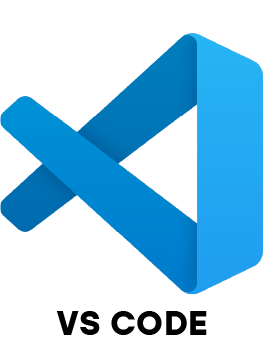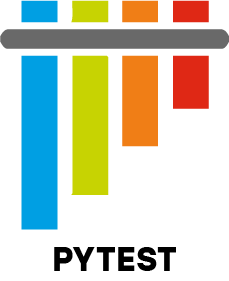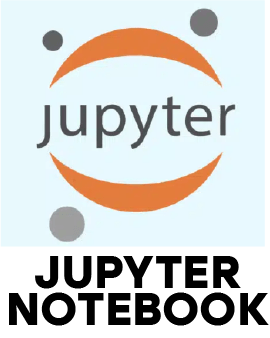Python is a popular open-source, high-level programming language with a variety of automation, data science, data analytics, and web-based applications. It is an object-oriented and interpreted language that is versatile, powerful. Python has the biggest amount of job prospects as a programming language. Researchers called Python 'the next big thing' since many young and experienced developers choose it and provides you an extensive Python Course in Gurgaon, with sophisticated theoretical ideas such as developing scripts, between all IT languages. Python is a highly interpreted, object-oriented, dynamically semantically programmed language. Its high level of data structure, combined with dynamic typing and dynamic binding, make it highly appealing for quick application development, as well as for the application of existing components as a scripting or glue language. The straightforward syntax of Python emphasises readability, thus reducing the maintenance costs of the programme. Python supports modules and packages that promote the modularity of the programme and the reuse of code. The Python interpreter and the extensive standard library can be obtained from all major platforms free of charge from the source or binary.
Additional Info
Often, Python is loved by programmers because of its increased productivity. The edit-test-debug cycle is unbelievably fast since no compilation step exists. Python programmes are easy to debug : a bug or bad input never causes a segmentation fault. Rather, it raises an exemption when an interpreter detects an error. The interpreter prints a trace of the stack when the programme doesn't get an exception. A debugger source level can check local and global variables, evaluate arbitrary expressions, set breakpoints, line by line code, etc. Python himself writes the debugger and attests to the introspective power of Python. On the other hand, the fastest way to debug a programme is to add some prints to the source: this simple approach is made very effective by a fast edit-test-debug cycle.
Career Path uh Python :
Python's learning is gone mainstream. If you haven't heard, Python, including Instagram, Netflix, Reddit, Lyft, Google and Spotify are hundreds of today's most successful technology companies. But the New York Times, Bloomberg, and even your local bank are used as well.A number of clear roads to find meaningful work can be found in Python. Although certain of those potential positions may appear obvious – as a Python developer – other careers where it's more unexpected to know that Python is an asset.
Did you know, for example, that certain doctors use Python? The author of the upcoming book "Python for MBAs" by Mattan Griffel Columbia University Professor, explains his own surprise when he learns his friend, a neuroscientist, uses Python :That one neuroscientists spend up to a fifth of their work on Python underscored how computer nerds can't regard programming and coding as an obscure tool anymore. Without a doubt, if you want to improve your career, Python has become one of the best programming languages.
Job Position :
1. Python Developer :
The most direct task for someone who knows the Python programming language is to become a Python developer.You can expect a Python developer :
- Construct websites
- Data algorithms optimise
- Solve problems in data analysis
- Security and data protection implementation
- Reusable, testable and powerful code writing
A wide range of Randstad-listed companies are seeking developers from Python. Learn Python now, and you could end up tomorrow as a developer of Python working at startups such as Lyft or bigger companies such as ADP.
2. Product Manager :
Product managers have to research new user features, find loopholes on the market, and argue why certain products should be constructed. Data playing a major role in their work, so many companies now look for Python-known product managers.
In its blog post "Growth Product Managers: You Should Learn to Code Python," William Gil, Product Manager at Berlin startup FATMAP, argued that : [Python] saves time through automated reporting and analyses, making you less dependent and a little more confident about looking at your analytical data yourself. If you are searching for a job which calls for user conversations and data to crop, you may want to become a product manager. Only a few companies hire Product Managers with Python skills from Snapchat and Crunchbase.
3. Data Analyst :
Are you interested in finding meaning in large quantities of information? Many companies are looking for someone who can screen large data sets—and a popular way to achieve this through Python libraries like SciPy and Pandas.
Python is considered to be one of the leading programmes for machine education, so organisations like Memorial Sloan Kettering and Bloomberg are not surprised to seek out Python's Data Analysts on their summary.
4. Educator :
Someone has Python to teach, right? And it's not one month that everyone learns! (But it is not against which we would argue.) The first thing that comes to mind, but not the only role that teachers who know Python can play, may be to become an IT instructor. Almost every university and bootcamp code, as well as online coding tutoring platforms such as CodeMentor, need Python teachers!
5. Financial Advisors :
Citigroup started in 2018 to train its banking analysts in Python. The hope is to cut costs and increase the bank's revenues with chops for the programming of computer code. Business schools across the country reacted to their MBA students by teaching Python. Mattan Griffel says that "Intro to Programming Using Python" is the "most successful course launch in history" at Columbia University Business School. Hundreds of students in finance want to learn Python.
6. Data Journalist :
The journalism of data is a journalism specialty which uses data for storytelling. Journalists who are familiar with Python are required for their ability to process information quickly. This is only the role for you if you are a strong writer to boot.Amanda James, Law360 data reporter, told One Month,To arrange, analyse, and display information, I use Python. In Python there are many different software libraries, such as Mattplotlib to produce charts, Pandas for sorting and filtering data and searching for tendencies, and BeautifulSoup for web scraping.
Advantages of Python :
- Reading, learning and writing easy :
Python is an English-like high-level programming language. This makes reading and comprehending the code easier.Python is easy to pick up and learn, so many recommend Python to beginners. You need less code lines than other major languages like C/C++ and Java to accomplish the same task.
- Productivity improvement :
Python's a language that's very productive. Thanks to Python's simplicity, developers can concentrate on the solution. You don't have to take time to understand the programming language's syntax or behaviour. You write less code and you do more.
- Language interpreted :
Python is an interpreted language, meaning Python runs the code line by line directly. In the event of an error, the execution will stop and the error reported will be reported.Only one error is shown, even if there are several errors in the software. This facilitates debugging.
- Typed in dynamics :
Unless we execute the code, Python does not know the variable type. During performance, the data type is automatically assigned. The programmer needs no concern over the declaration of variables and their data types.
- Open-Source and Free :
Python is subject to the open-source licence approved by OSI. It can be used and distributed freely. The source code is downloadable, modified, and even your version of Python can be distributed. This is useful if you want to modify certain behaviours and develop the version of them.
- Wide support for libraries :
Python's standard library is huge, almost all the features you need for your task can be found. You must not rely on external libraries, therefore.But even if you do, it is much easier for you to import other great packages from the Python package index by a Python package manager (PyPi). There are more than 200,000 packages.
- Transportable :
You must change your code to run the programme on various platforms in many languages like C/C++. With Python, that's not the same. You just write and run it wherever you are.
Application of Python :
1. Easy to learn −
Python does not have very much keywords, a simple structure and a clear syntax. This enables the student to quickly learn the language.
2. Easy to read −
The code of Python is clearer and easier to see for the eyes.
3. Easy-to-keep −
The source code of Python is relatively easy-to-keep
4. A large, standard library –
Pythons bulk library, compatible with UNIX, Windown, and Macintosh, is extremely portable and cross-platform.
5. Interactive Mode −
Python supports an interactive way to test and to debug code snippets interactively.Python can run on a wide range of hardware platforms on all platforms and has the same interface.
6. Extended −
The Python interpreter can be added with low-level modules. These modules allow programmers to make their tools more efficient or more customised.
7. Databases −
All major databases are interfacing with Python.Python supports GUI applications that can be created and transmitted to a widespread variety of system calls, libraries and windows systems like Windows MFC, Macintosh and the Unix X Window system.
8. Scalable −
Python offers a better structure and support than shell scripting for large programmes.
Features in Python :
- Code-friendly :
Python is a high-level language. In contrast to other languages such as C, C#, Javascript, Java, etc, Python is very easy to learn. Codeing in Python language is very easy and in a few hours or days anyone can learn Python fundamentals. It's also a language that works with developers.
- Open Source and Free :
The language of Python is available free of charge from the official website. Click on the Python keyword download link below.
- Language of the object :
Object-oriented programming is one of Python's main features. Python promotes object-oriented language and class concepts, encapsulation of objects, etc.
- Support for GUI Programming :
A module, like PyQt5, PyQt4, wxPython or Tk in python can be used for the graphical user interfaces.PyQt5 is the most popular way to create Python graphical apps.
- Language of high standard :
Python is a language of high standard. We don't have to remember the architecture and don't have to manage the memory when we write programmes in python.
- Extensible functionality :
Python is a language extensible. It allows us to write some Python code to C or C++ and also to compile it in C/C++ language.
- Portable language is Python :
The language of Python is also portable. For instance, we do not need to change the python code on any platform if we have windows and want it to run on other platforms like Linux, Unix and Mac.
- Integrated language of Python :
Python is an integrated language too, since Python can be easily integrated with other languages, such as c, c++, etc.
- Language interpreted :
Python is the language that has been interpreted because Python code is run line by line at a time. C, C++, Java, etc. as other languages. This makes it easier to debug our code, no need to compile python code.
- Large Standard Library :
Python has a large standard library that provides a wealth of functions and modules so that every single thing you don't have to write your own code. In Python, there are a number of libraries for regular phrases, unit testing, web browsers, etc.
- Type of language dynamically :
Python is a language of dynamics. This means we don't have to specify the type (such as int, double, long, etc.) for a variable at run time, due to this function. Please be careful! Strengthen your fundamentals by learning the basics of the Python Programming Foundation course.
Job Resposibilities of Python :
- Efficient, scalable code writing
- Develop background components to improve reactivity and performance
- Integrate elements of user orientation into applications
- Testing and debugging
- Improving existing systems functionality
- Implement solutions for security and data protection
- Evaluation and priority requests for features
- Coordinate with the internal teams for user needs and technical solutions
Payscale of Python:
The average Python entry level salary is 427K in India. The Python mid-level developer's pay in India is an average of 909K daily. In India, the average Python developer's wage is 115K. A developer from Python with 2 - 4 years of experience in India has an average pay of about 5 lakh, while a developer of Ruby (compared with Ruby as a potential Python competitor) has a salary of about 4.48 lakh.In contrast, the salary of a Python programmer is about EUR 48K in Germany.If you come to Canada, it'll be around 99K three times the average wage in CanadaFor Python's highest developers, Gurgoan becomes the dream city. Bangalore – India's Silicon Valley pays off 669K developers to Python. The least paid for is Hyderabad — to Python developers — to the 475Kand Pune & Chennai — to the 540K.








































